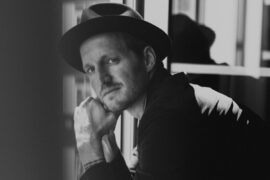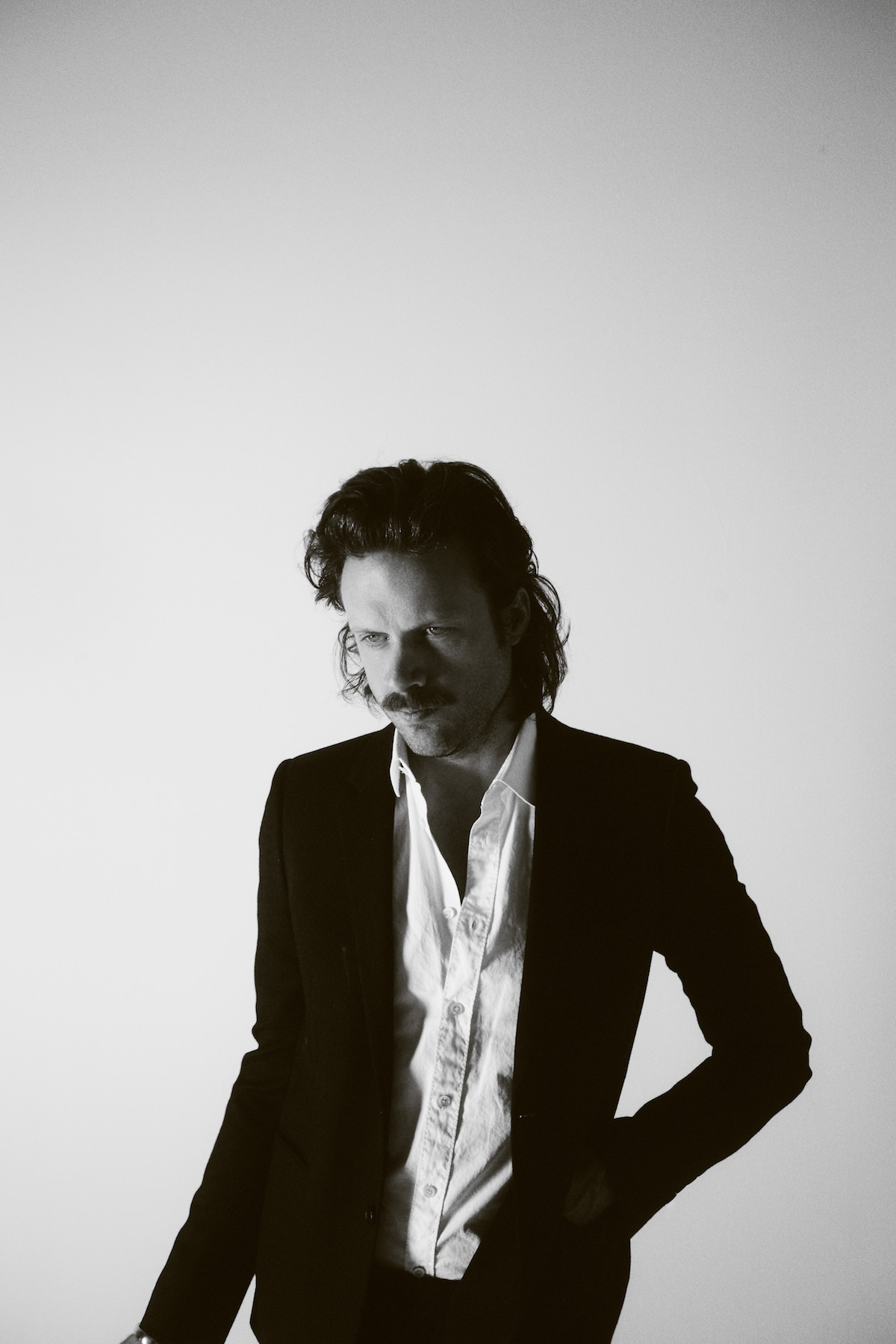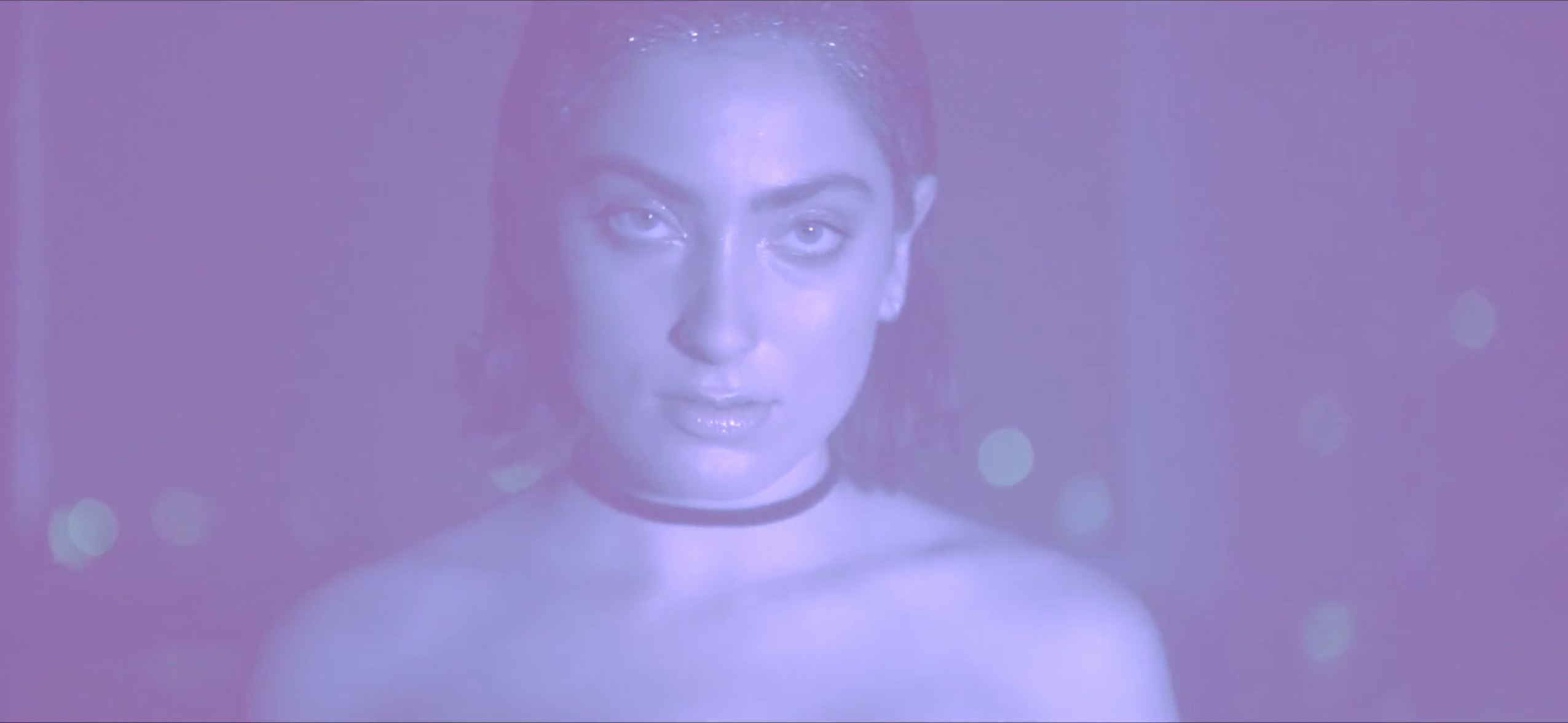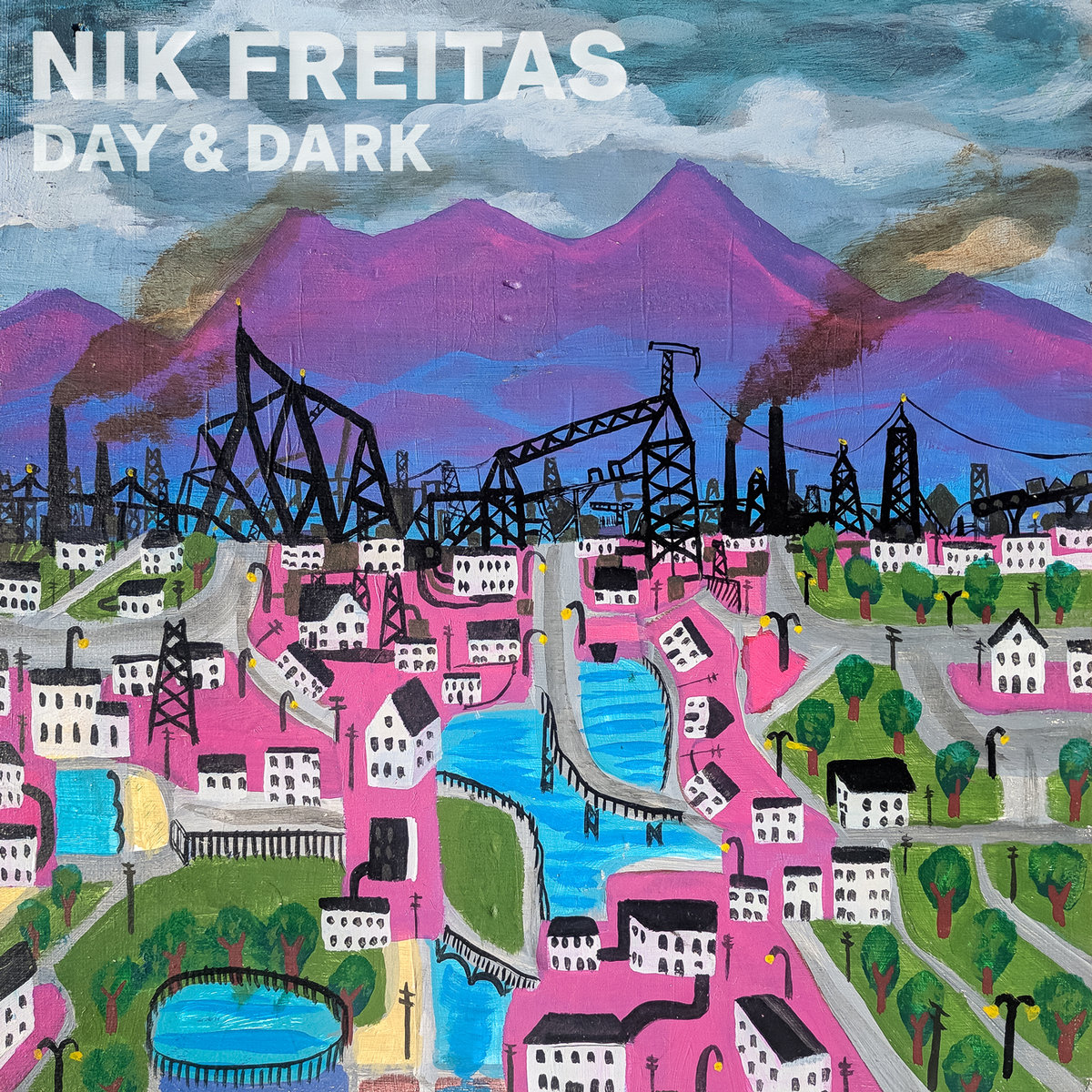Musogabi (AKA, Micky Yun) could easily be indie’s new breakout star, what with his sleek guitar arrangements, crisp vocals and strikingly unique compositions. As refreshing as it is soul-stirring, Musogabi’s debut record ‘Cassiopeia’ is the first sampling of this rising artist’s discography, simultaneously serving as an introduction to the Musogabi universe and a hint at all that is to come.
Stream: ‘Cassiopeia’ – Musogabi
Every now and then you stumble upon a piece of art that stops you in your tracks; something so special that it possesses the unique ability to halt time for a brief moment.
It sounds cheesy, but the real ones know. And for me, being about as real as real comes (joke), the most recent harbinger of this phenomenon in my life was Musogabi’s Cassiopeia.
I don’t remember where I was when I first heard “Nameless” — the track on Cassiopeia that initially caught my attention — but regardless of the time or place, it was definitely an a-ha! moment.
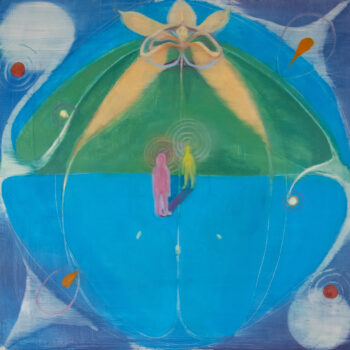
Musogabi’s soft-yet-distinct vocals start the track: “It’s one in the morning but nothing’s begun / You called me and said you were over and done,” he sings before continuing on. “You’re slurring your words and you say you need help / Why do you always do this to yourself?” All of this comes layered over cheery, almost-contrarian, strumming on the guitar which later gives way to Jeff Buckley-esque wails and arpeggiating synths. It only took a few measures for me to know that I liked what Musogabi was putting down.
Not to sound pretentious or anything (a phrase well-known to negate its own request), but as I listened to Musogabi’s Cassiopeia, I felt like I was being let in on a secret before it’s shared; being given a breaking news tip before it’s blasted onto screens around the world. And let it stand, with this article as my proof: I knew Musogabi before he blew up. Humble. Brag.
As I marveled over Cassiopeia, I found myself thinking: “Just who is this Musogabi character?”
And then I quickly remembered that I could take matters into my own hands (I am a music journalist). Just how might I accomplish this, you ask? By setting up an interview with the guy. Music journalism ain’t dead yet! Thanks Atwood (And Musogabi for chatting with me)!
Don’t let the casual tone I’ve assumed in this article dissuade you of Musogabi’s musical prowess. His discography is reminiscent of — but not in tribute to or a brainless imitation of — the music of greats such as Elliott Smith, The Beatles and Radiohead. Musogabi’s sonic world is one rife with thought-provoking lyricism and atmospheric arrangements, rooted in equal portions of everyday angst, poignant melancholy and revitalizing hope.
Musogabi himself is Micky Yun, born and raised in New York City’s Queens borough. Confessing that his own name isn’t all too SEO-friendly, he shares that his artist moniker is an amalgamation of the names of both Yun and his girlfriend’s pets (her cats, Bazi and Gilbert and Yun’s dogs, Mung and Som), manufactured by the latter as a joke. The name gets bonus points for sounding “vaguely Asian,” as Yun puts it.
Yun has spent most of his early career as an artist posting covers of songs to his YouTube and TikTok channels. He views these channels as part of the Musogabi universe instead of completely separate entities, especially when it comes to drawing new crowds to his original work. Yun has cultivated a strong and passionate community of like-minded music lovers online by sharing exquisite covers of some of his favorite songs, dabbling in classic indie (Radiohead, Elliott Smith, Jeff Buckley), vintage pop-rock (The Carpenters, The Beatles) and some niche deep-cuts (Lamp, Vashti Bunyan).
“You get to curate what audience you have [with a YouTube channel],” Yun expresses. “Because now people all with the same taste as me are following me, and so hopefully they’ll be more likely to resonate with my own music.”
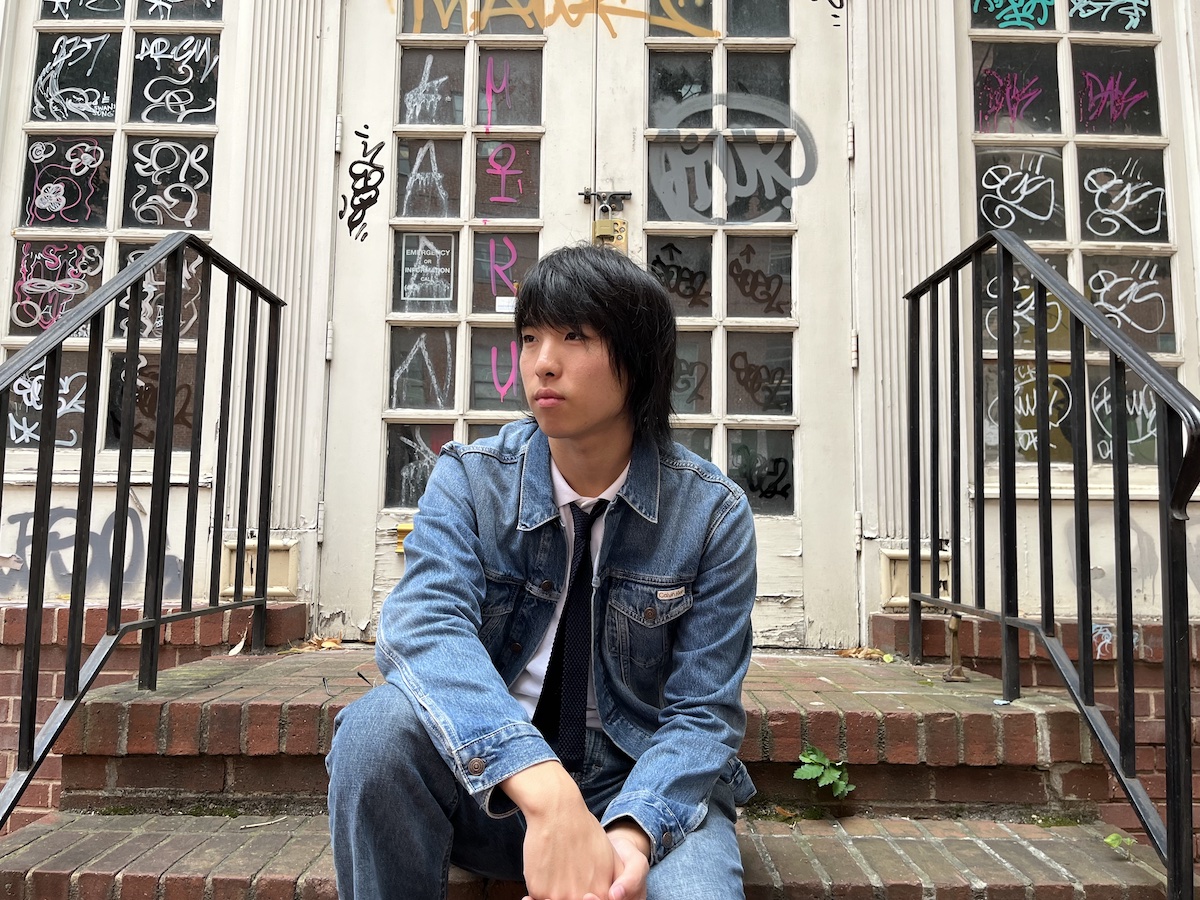
Cassiopeia, Musogabi’s debut record (released Feb. 2), feels like a long exhale after a tumultuous day.
It is an emotional bildungsroman of sorts, in which we hear Musogabi trying to quell his own thoughts for long enough to deal with the minds of those he loves and cares about. Cassiopeia is an emotional balancing act, but one that Musogabi bears with grace.
Written over the span of two years, Cassiopeia has a clear through line of emotion, though the project was not something Musogabi intended to be an emotional upheaval as he wrote the songs.
“The emotions help me write the song,” he shares. “ But usually it just comes musically first and then I attach that music to whatever feeling comes to me when I listen back to it.”
Over the course of the record we get upbeat songs that provide momentum (“Windows,” “Night Hag”), simple arrangements that one can hum along to (“Almond Blossom,” “Nothing Will Happen”) and a touch of melodrama (“New Mirror,” “It Was Dark”). Cassiopeia runs the gamut of sonic versatility, also laying a solid foundation for Musogabi’s sound. Each song is differentiable from its neighboring tracks, but all 12 on the record are truly and undeniably written in the Musogabi style.
One of the aspects of his career that Musogabi has spent much time pondering is the role being Asian plays in his music.
He has found that he does not neatly fit in the set archetype that many East Asians occupy in the music industry — that of a K-Pop idol or 88rising star (though he retains massive respect for the work of those artists).
“I’m hoping to add to the list of Asians who are breaking through and sharing their voice in a pretty Western-centric world,” Musogabi asserts.
Refusing to let his art be watered down just because he does not fit into the cookie-cutter Asian role in music, Musogabi seeks to continue carving out a space for East Asian people like him within the largely White indie music genre. Citing Beabadoobee, Japanese Breakfast and Mitski as fellow Asians in indie, Musogabi seems to have found himself in good company.
It’s equally as exciting to be a new artist as it is nerve wracking. With Cassiopeia acting as a solid starting point, Musogabi looks toward the future. All he asks is for people to continue listening to his work and supporting in the ways they can — whether it’s buying a CD or coming out to a show or streaming his songs (or even buying the record on Bandcamp if you want to go the extra mile).
“The people help motivate me,” he discloses.

I’m hoping to add to the list of Asians who are breaking through and sharing their voice in a pretty Western-centric world.
Musogabi is set on following his north star, with Cassiopeia being the first step of what will hopefully be a long journey.
To Musogabi, the only thing that matters in the long run is staying true to his art and keeping his passion for music alive. Without those two factors and the fans who support him, the point would be moot.
The last song on Cassiopeia is “Morning Bed,” whose final chorus contains the lyric: “And you don’t know what’s coming.” I can find no better way to end this article than with that sentiment — we might not know what comes next, but if it has to do with Musogabi, we can bet on it being good.
Continue reading below for a conversation between Atwood Magazine and Musogabi about his career thus far and the making of Cassiopeia.
— —
:: stream/purchase Cassiopeia here ::
:: connect with Musogabi here ::
Stream: ‘Cassiopeia’ – Musogabi
A CONVERSATION WITH MUSOGABI
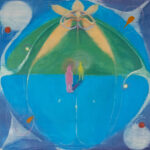
Atwood Magazine: To start off, I want to get a sense of your background as a musician. What got you into making music or just into music in the first place?
Musogabi: Definitely just picking up a guitar in high school. Before that, I didn’t really look too deeply into music. Once I started learning songs and discovering older songs and getting some of my Dad’s and Mom’s influence, it opened up a whole world for me.
That's awesome. What kind of music did they listen to that maybe influenced you?
Musogabi: My Mom loved “Creep,” so that got me into Radiohead. Even though at the time I thought it was kind of a weird song, now it’s not weird at all. And my Dad told me to learn “Stairway to Heaven,” which is like a joke in the guitar community. That’s the song that every beginner tries to learn. But I feel like that song specifically made me realize how complex music and structure can be.
I love that. Parents can really shape the trajectory of music interests, so I love that. Can you tell me a little bit about your artist name, Musogabi?
Musogabi: I was trying to come up with a name in the beginning, I was thinking of just using my name Micky, but I thought that was a little bit too ungoogle-able, maybe too simple. My girlfriend’s cats are named Bazi and Gilbert, and my dogs’ names are Mung and Som. She combined all of their names to create “Musogabi” as a joke. It wasn’t a joke to me because it sounded pretty cool. Sounds vaguely Asian, I guess. So I just went with Musogabi.
Thing is, it was only after I decided that “Musogabi” was gonna be my name that I realized the pets’ names together would actually be “Musobagi.” It was a funny realization —Musobagi sounds infinitely less cool, so I stuck with Musogabi. I guess it’s not a perfect mix of their names, but it is a mix.
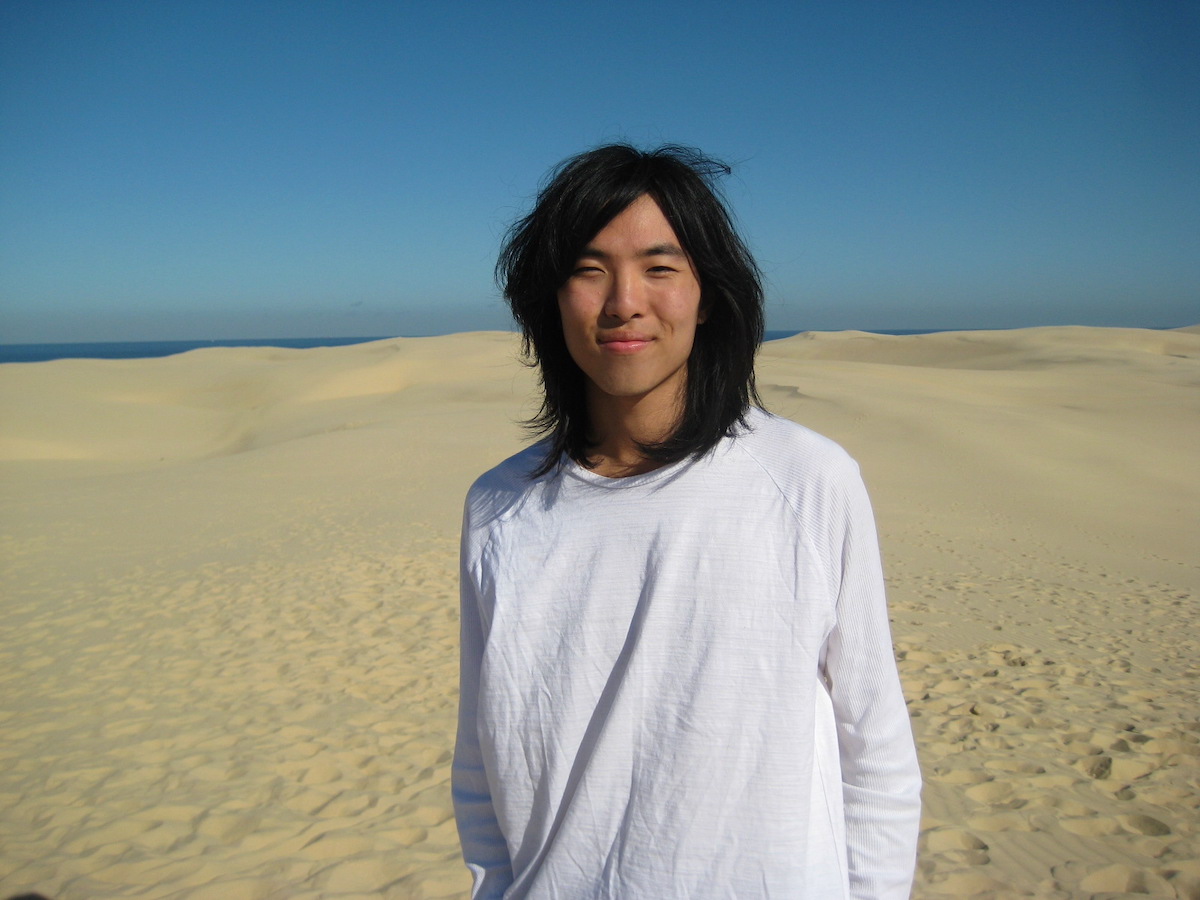
I love that it's an amalgamation of pet names and I do like that it sounds vaguely Asian. It could be an Asian surname, for sure. Going off of that, from one Asian to another, I read a Sofar Sounds interview or blurb where you talked about being East Asian in the music industry, and how there's kind of one archetype of being Asian in the music industry. It seems like you can either be categorized as K-Pop or J-Pop. You don't really see too many Asian folk singers or a ton of Asian indie songwriters, even though more are popping up into the mainstream as time goes by. How does your identity as an Asian person come into the music that you create?
Musogabi: That’s a great question. I still stand by that. A lot of the view of Asian music is kind of like if it’s not K-Pop, and if it’s Western, it’s still kind of like the 88rising label — which is a really cool label, because obviously they’re such a big voice for Asian musicians and just Asians in general — but that notion does kind of pigeonhole Asians into another genre which is what we don’t want. I’m hoping to add to the list of Asians who are breaking through and sharing their voice in a pretty Western-centric world. People are already doing that, like Mitski, Japanese Breakfast and Beabadoobee. It’s great to see them thriving.
For sure! I've gotten that notion too. We don't really have a diverse picture of what Asians can do in music. What has your experience as an independent artist been like so far?
Musogabi: I won’t say it’s an outright struggle, but it’s definitely a challenge. You have to fund everything yourself, you have to market yourself. I’m sure most of us don’t really know how to do that effectively, or maybe you do know some ways to do it, but you just don’t want to. No one likes marketing themselves or spamming themselves all over their accounts, they just want to focus on the music. But it’s hard to focus on the music when you don’t have a following built up, shows booked and all that. It’s definitely a challenge, but I’m trying to find my way.
You're doing a great job. On top of releasing your own original music, you also have a YouTube channel where you cover other artists' songs. Do you feel like that channel is part of the Musogabi world, or are the entities somewhat separate from one another?
Musogabi: I would say for now, it definitely is. Hopefully one day I’ll be able to branch out and do my own thing. But I’m so grateful for my small social media following, because even though I’m covering other songs, people find interest in me because of that. I don’t think my own music would have gotten to where it is now without those people. I’m still pretty small, but I’m happy with where I am right now in my journey. I’m still growing, but yeah, I’m thankful for my channel.
It's really cool, because you can see some of the artists who influenced you and the songs that influenced you. It's like a conversation with your own original work, which I think is really cool.
Musogabi: That’s true. That’s another benefit to doing this stuff: you get to curate what audience you have, because now people all with the same taste as me are following me, and so hopefully they’ll be more likely to resonate with my own music. So it’s definitely good in that way.
It creates a community around it. I was looking at your stuff, and I was like, “Wow, he's playing some really good songs.” And all of those songs seamlessly flow into yours, like “Nameless” or “Nothing Will Happen.” Are you based in New York?
Musogabi: Yes, I am. Born and raised in Queens.
How has living in the city and being surrounded by its music scene shaped your artistry and your artist project?
Musogabi: It’s obviously super helpful. Just in terms of just seeing music live, you have an abundance of that here, whether it’s big musicians or small musicians. I feel like New York is probably the place where you can find the coolest people the easiest, so because of that, I met a lot of friends later in my life who are into the same music. It’s nice. It’s a pretty big and competitive community, but still, you can find lots of cool people.
That's awesome. Yeah, the city is really a hub for good music, and especially in the DIY and independent scene I feel like there's such a strong, tight-knit community there.
Musogabi: I’d like to be more part of it. Honestly, I feel like I’m still not really fully involved.
I imagine it's probably kind of hard to work your way in there sometimes, since there are so many voices there. But I trust that you'll find your way. Are you okay if we shift gears and talk a little bit about your debut record?
Musogabi: Yes, awesome.

Can you share some insight into how you chose the name Cassiopeia?
Musogabi: I had some help with that, because I felt like the final product of the album kind of came out a little vaguely spacey. A lot of the songs sound kind of cold and harsh, but there’s warmth in moments. Also, the album cover came out to be a pretty abstract, ethereal kind of thing, so I wanted to give it the name of a star. I looked into some stars, and Cassiopeia was a great one, so I just chose that.
I love it. I feel like it also has a good story. I forget what the story is, but maybe that could connect to the record somehow.
Musogabi: That’s what I was thinking. I didn’t look too deeply into it, but maybe the meaning will line up with it.
You mentioned the album art that was done by Jeanie Yoo. Did you work together to collaborate on what it would look like or did you just kind of say, “I want you to do my album art, run with it”?
Musogabi: Pretty much the second one. We obviously had a big talk about what kind of mood would suit it, what elements should go in it, and maybe the color palette. But that’s basically the extent of my input. She came to me with the first draft, but it wasn’t exactly what we wanted. So then she came up with a completely different one, which I basically had no say in, but it was beautiful. So that’s what we ended up going with. But it was all her basically.
Yeah, she killed it. I feel like it really fits the tone of the record too.
Musogabi: For this record, I was pretty set on having a painting or a piece of art for my album cover. I didn’t care too much about using a random photo I took, or a photo of myself, or even having text on it. Which might be a little dangerous as a new artist, you know, you might want your name on it.
I feel like it kind of creates some mystery, in that you want to discover more. It's not just a photo of you being like, “This is me and this is my album.” I saw it and I was certainly like, “Wait, this is kind of mysterious. I want to learn more.” So that could be a benefit of not having “Musogabi” written all over it. I first discovered this record from “Nameless,” it popped up on my Spotify Discover Weekly, and I know that's the song you released first off of the record. What inspired you to release that specific track first?
Musogabi: It wasn’t the first song I wrote for the album, but it was the first song that I was really proud of. I put so much energy into it and because of that, I was really precious about the recording of it. It came out really good — in my opinion — and it seemed like the most definitive song for me, so that’s why I decided to release it first.
That's awesome. Yeah, I feel like you have a really good through line of emotion and just themes throughout this record, but you didn't know you were writing an album when you first wrote all of these songs. How did you decide which songs to piece together on the record? Was it based more on the themes or the way that you had individual songs sounding?
Musogabi: I’d like to say that I had the foresight to thematically connect everything, but I didn’t, and that’s just the batch of songs that I had accumulated over the two years of writing. I had some songs that I left out. It was just an instinctual feeling of “this feels right” with this one. The track order is also perfect for me. I don’t really know if there’s an overall theme to the album, but hopefully they all gave a concise feeling.
It's melancholic but hopeful at the same time. Almost bittersweet in a way. It's a nice ebb and flow. You curated it, especially the track order, as you were saying, in a way that it tells a story that feels like a steady wave.
Musogabi: Thank you. I like describing it as hopeful, hoping it wouldn’t be too sad. I like hopeful.
Hopeful is good. It's almost like “realistic hope,” if that exists. Going off of that, the emotion in this record almost feels tangible at some points. Does songwriting strike you in the midst of these emotional moments where you feel like you have to just compose something or write something down? Or is it more of a product of reflection after the fact of feeling something for you?
Musogabi: I would say probably the latter, most of the time, but some of these songs definitely came out of a time where I was feeling those exact emotions. I don’t write songs based on emotion. The emotions help me write the song, but usually it just comes musically first and then I attach that music to whatever feeling comes to me when I listen back to it.
That makes sense.
Musogabi: When I write a song, it’s more about writing the music, and then trying to convey an emotion in the best way possible.

When did you kind of realize that you wanted to release this music? Releasing music is always a really personal thing. When did you go from mainly releasing YouTube covers, and then shift to thinking, “Maybe my music is worth people hearing too”? Or was that always the goal?
Musogabi: A year and a half ago, I had my first ever gig in Germany. I played most of my songs, and I realized that these were all presentable songs. That was the first time I really heard all of my songs together, because it’s not like I play my songs one after each other on my own. People would always ask me where they could listen to my music and when it would come out. At that moment, I did have the conscious decision of releasing music, but as I kept writing, I was like, “Alright, you know what? I’m gonna try to get all 12 songs, finished, and then record them.” I recorded them in a little over a month.
That gig was like an hour and a half of you playing, right? I remember reading about it on your website. How did you stumble across securing that?
Musogabi: Really simply, honestly. I was at my Girlfriend’s Dad’s 50th birthday. He just knew this bar bar owner who heard that I play music, and he asked me if I wanted to play at his bar, and if I could play for two hours or something. So I was like, “Wow, sure!” I was lucky in that way, where a bunch of family and friends came. It was a good experience.
How many other shows have you played? Have you done some in New York?
Musogabi: I have, but I haven’t done that many. I played one in Australia. I played a Sofar show here, and I played a full gig at Rockwood Music Hall last fall.
That's awesome. What is the experience of playing these songs live for you? Does it summon any feelings for you? What's it like seeing the audience react?
Musogabi: It’s definitely a different experience.I don’t really play my songs alone, so when I do get to bring them out on stage, it feels cathartic, you know, letting these songs breathe a little bit. Obviously the biggest reward is hearing people’s thoughts about it. I like seeing people resonate with the music just as any other musician does.

I've seen a lot of comments on your Instagram talking about how the record has helped them through hard times, and I think that's so sweet and meaningful. How has hearing this reception from fans and listeners impacted you?
Musogabi: Very greatly. I value their opinions the highest, because it’s always surprising to me. I can show my family and my friends and they can tell me that they like my music, but obviously, they’re your family and friends and are gonna love you and support you no matter what. But these random people who have no stake in your life, just telling you that your music is great, or that they love it, or that they listen to it after work every day, that’s just a crazy thought. I never get tired of hearing that, it definitely motivates me.
It should. I read some really kind comments on your Instagram. You should definitely be very proud, especially since this is your first album. That's a super exciting start.
Musogabi: Definitely.
You commented on one of your own posts, actually, that “New Mirror” is your favorite song on the record. Has that continued to be your favorite and if so, why?
Musogabi: Yeah, I feel like it’s my overall favorite, but there are different ones. My favorite song to listen to is “Ballad of Better Land” just because it just feels like such a comforting experience whenever I listen to it. But with “New Mirror” the songwriting is good, the music turned out good, and the different parts of it feel vaguely Beatles, which I like too.
Definitely. My favorite is probably between “Windows,” “Nameless,” and “Nothing Will Happen.” “Nothing Will Happen” has a special place in my heart, though, I just love how simple and calming it is.
Musogabi: I’m really glad you like them. “Nothing Will Happen” always surprises me, because that’s kind of one of my simplest songs on the album. I didn’t really think too much of it, but I’ve had multiple people tell me that that’s their favorite one, so that that’s cool to hear.
It seems like a big passion for you. Not many other music musicians I know are doing the YouTube covers and the TikTok cover thing and also maintaining an original career. It seems like something that you are really passionate about. How do you stray away from burnout as an artist — especially as an independent one without a huge team to back you?
Musogabi: I definitely do face that, which is why I haven’t posted on my TikTok in so long. And same with YouTube, I’m inconsistent. I try to capture those moments of motivation as well as possible. If I’m feeling motivated for TikTok, I’ll record 10 videos and maybe change my shirt or something. But I just post them over time. I try to stay consistent, but it’s hard sometimes. As I was creating my website, or as I was designing my CDs, there were many moments where I just put the mouse down and I was like, “I don’t want to do this, this is why people have other people do things for them.” Seeing the end product is always rewarding. If I didn’t get any views on my stuff or anybody supporting me, I would really just give up. But the people help motivate me.
Definitely, that's important. I feel like you've done a good job of maintaining this ethos as an authentic artist, as a person who loves music as well. You're not always out there being like, “Stream my new song, stream my album.” You've done a good job centering your love for your art and your passion for it, as opposed to just the whole promotion, which can be just really hard to balance as an artist.
Musogabi: I’m definitely still trying to find that balance. Maybe I should be doing more of that. But it’s definitely all about the balance.
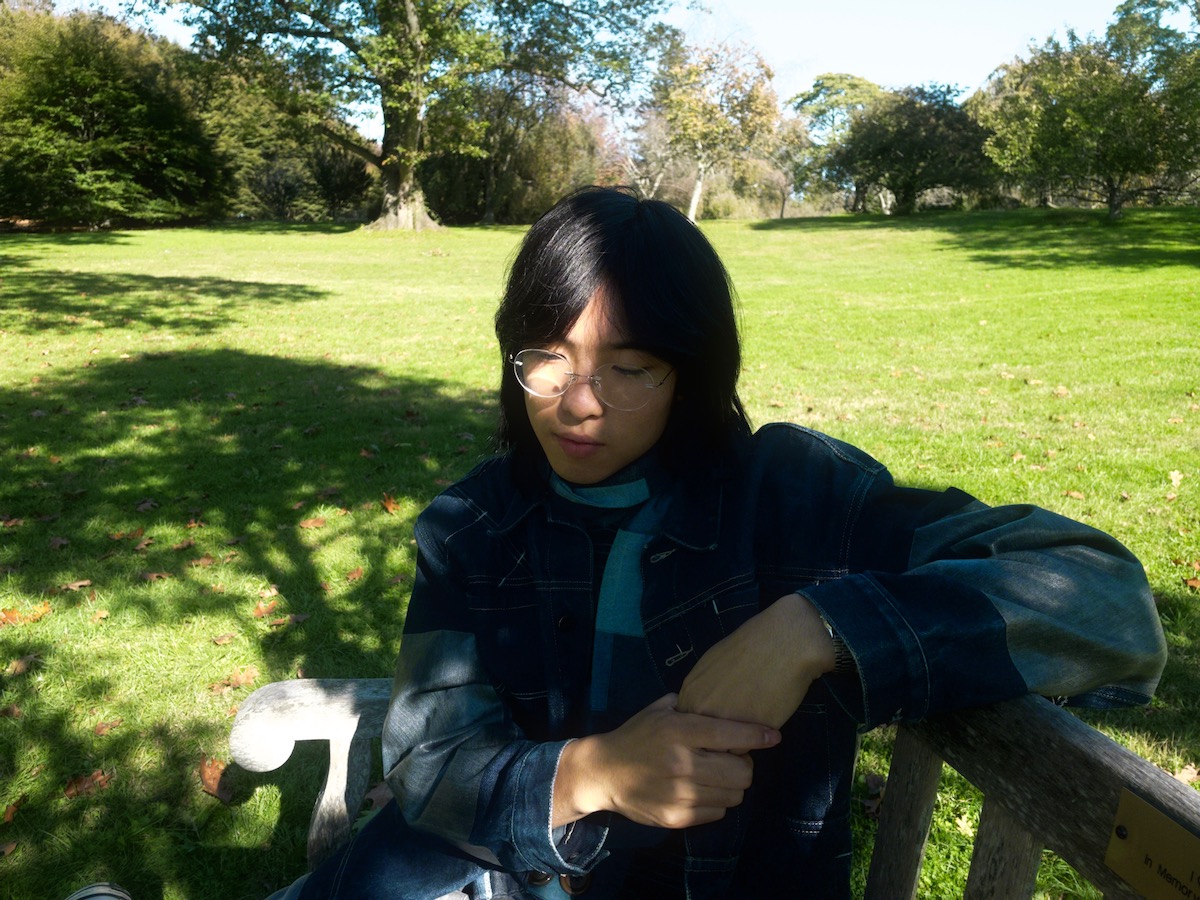
People are discovering you more and more every day. It's awesome that you popped up on my Spotify Discover Weekly. How can fans help support you and your ongoing endeavors as a musician?
Musogabi: I think just following whatever I do. If I release any music I hope they go listen to it. I don’t have any concrete plans of releasing anything anytime soon, but I am working on maybe a potential single. This is going to be the most interesting thing for me now that I’ve already released my album and saw the numbers for that. I’m wondering how my next release is going to do — if it’s going to be worse or better or similar. Following and supporting me for sure, buying CDs.
Well, I'm looking forward to the next Musogabi release whenever that will be. We're at my last question. I like to end all of my interviews on a happy note, so, what has been giving you joy lately? It can literally be anything, not even music related.
Musogabi: Oh, making pizzas from scratch. Making the dough, resting it for a while, cranking up the oven, and trying to get the dough consistency right. That’s kind of fun. Also reading.
What have you been reading lately?
Musogabi: I just finished a Murakami book, “The Wind-Up Bird Chronicle,” about to go on to “The Phantom of the Opera.” I feel like that’s gonna give nice, fall vibes. It’s just nice to not be on your phone at night. It helps you sleep and is a really nice ritual to just open up the book.
— —
:: stream/purchase Cassiopeia here ::
:: connect with Musogabi here ::
— — — —

Connect to Musogabi on
Facebook, TikTok, Instagram
Discover new music on Atwood Magazine
© Micky Yun
Cassiopeia
an album by Musogabi

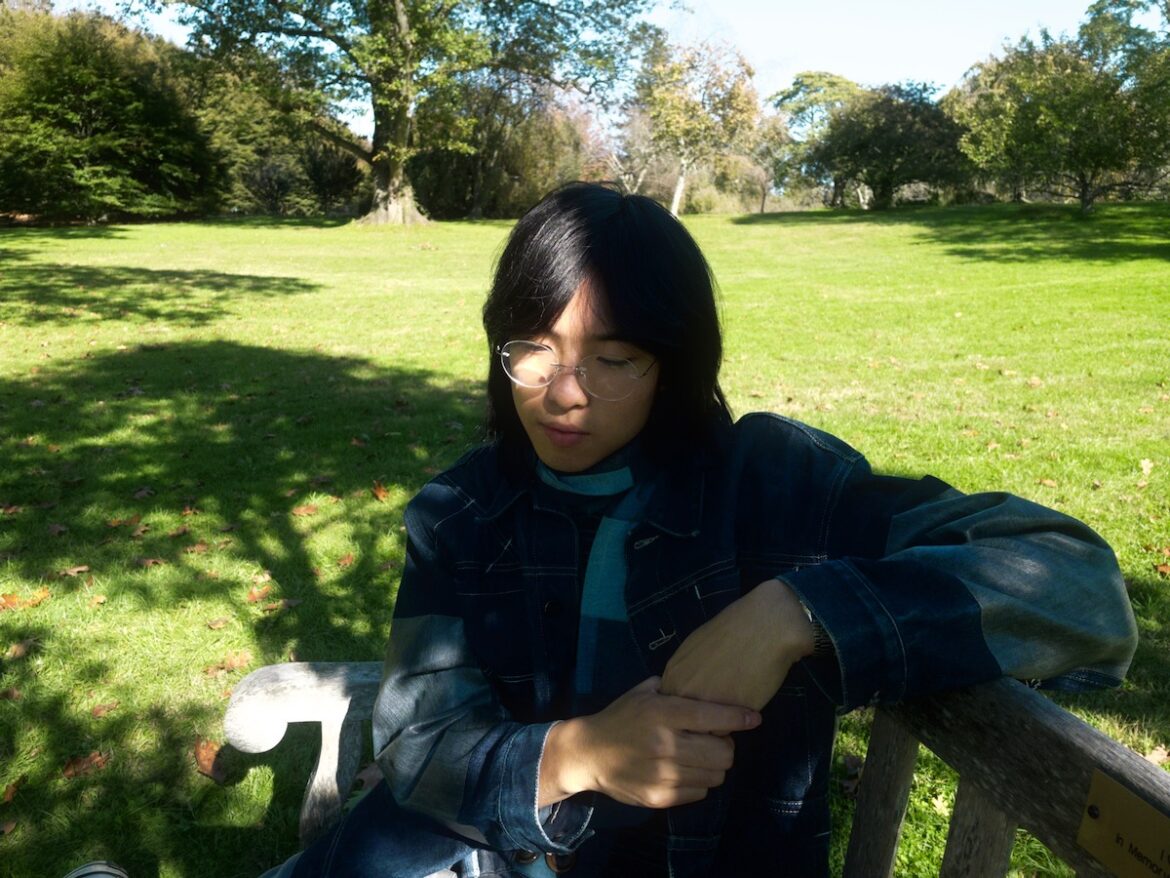
 © Micky Yun
© Micky Yun

